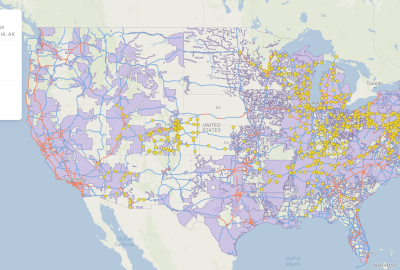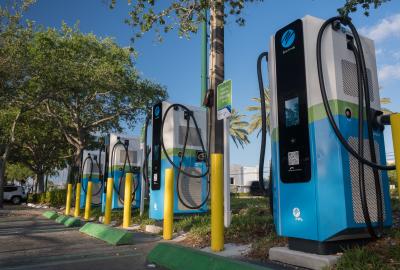
By: Kellen Schefter
December 7 marks the second anniversary of the National Electric Highway Coalition (NEHC), a collaboration among more than 60 electric companies with the goal of providing electric vehicle (EV) fast charging stations along major U.S. travel corridors.
NEHC members continue to support the deployment of EV charging stations through a variety of programs, mostly incentive or make-ready programs in which the NEHC member is reducing the cost of deployment for a third-party owner/operator. For a catalogue of customer programs supporting EV charging infrastructure, see EEI’s recently updated EV Program Database.
The Electric Generation has chronicled how NEHC members are partnering with stakeholders to ensure customers have access to convenient public chargers. Just a few examples:
- In New Orleans, Entergy New Orleans partnered with local officials to install 30 EV chargers throughout the city.
- In California, San Diego Gas and Electric supported four DC fast chargers designed to power medium- and heavy-duty vehicles at a gas station near a busy port of entry along the U.S.-Mexico border. These chargers also can power light-duty vehicles.
- In Georgia, Georgia Power worked with the Marine Corps Logistics Base (MCLB) Albany to install charging stations across the base.
About 36,000 public EV fast charging ports are available today, compared to about 20,000 when the NEHC launched two years ago. NEHC members have played an important role in spurring this development.
To meet the rising demand for EVs, charger deployment must accelerate
Charging infrastructure is expanding, but the pace needs to accelerate. The National Renewable Energy Lab estimates that more than 180,000 EV fast charging ports will be needed to accommodate 33 million EVs on the road by 2030. An average of more than 20,000 EV fast charging ports will need to be deployed in each of the next seven years to meet this goal.
It is clear there is a growing customer demand for EVs—cumulative EV sales have nearly doubled over the last two years, jumping from 2.3 million in Q3 2021 to 4.5 million in Q3 2023. While it took more than 10 years to sell the first 2.3 million EVs, it took just 2 years to nearly double that figure.
In order to support growing demand for EVs, every stakeholder must work together to provide equitable access to EV fast charging infrastructure for all customers in all regions.
Customer experience at the forefront
Early this year, the NEHC published a vision statement that highlighted how reliable and easy-to-access public EV fast charging is fundamental to a positive customer experience. An increased number of fast charging ports will not lead to widespread EV adoption unless chargers are reliable and easy to access. Automakers also are taking customer experience into account.
In May, Ford announced a partnership that would allow Ford EVs to access some Tesla EV fast charging stations as early as next year. Ford also is adopting the Tesla-developed North American Charging Standard (NACS)—reported to be the most reliable and accessible network—for future EV models. Nearly every major automaker selling EVs in the United States has since made a similar announcement.
The Biden administration also recognizes the need to accelerate the deployment of EV chargers, allocating federal funding that is changing the public EV charging landscape. In February 2022, the Federal Highway Administration announced the National Electric Vehicle Infrastructure program—created by the Bipartisan Infrastructure Law—that will make $5 billion available to states to deploy public EV charging.
NEHC members have been working closely with state departments of transportation to assist with state-specific plans, evaluate grid capacity and infrastructure needs, and help maximize the reach of federal funds.
To date, eight states have issued their first awards for public EV fast charging, accounting for more than $100 million in federal funding.
Moving forward, NEHC members will continue to share best practices with other electric companies, states, federal agencies, and third-party site hosts to build out public EV fast charging that enables EV travel on major corridors across the nation.


